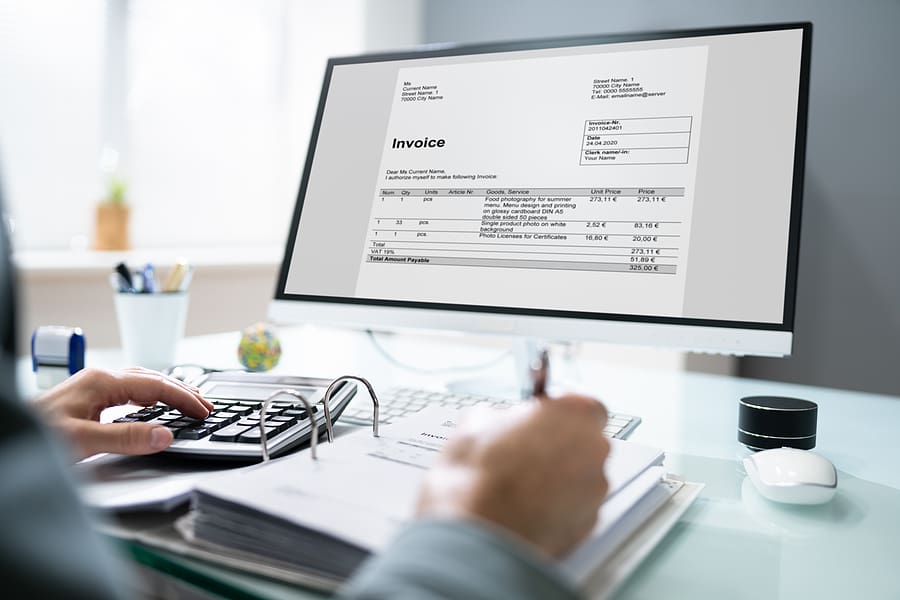A Guide to 1099 Compliance for Businesses
It is always important for businesses to stay tax-compliant, as errors can have significant consequences, both financial and legal. There are several key tasks associated with 1099 year-end reporting, and it is important that businesses make sure that nothing is overlooked. It is also important to note that 1099s will now need to be electronically filed, and most payroll companies will not do this on behalf of your business, regardless of your previous tax arrangements.

1. Identification of 1099 Contractors
The first step for business is to review records to identify all individuals and businesses that were paid $600 or more during the calendar year for services rendered. Every contractor paid over this amount must be provided with the correct forms. This will report the compensation to the IRS on behalf of the contractor, and will allow contractors and freelancers to file their taxes.
2. 1099-INT: Interest Income
The 1099-INT form is mandated by the Internal Revenue Service (IRS) to report interest income. This form is often overlooked. Businesses who are distributing interest income to investors throughout the tax year will be required to submit this form. It provides a detailed breakdown of various interest earnings and associated expenses. It’s a requirement for payers to furnish a 1099-INT to any recipient who has received a minimum of $10 from them in interest payments within the preceding year, with the deadline set for January 31 of the following year. Once completed, one copy of the form is submitted to the IRS, while another is sent directly to the taxpayer for their records.
3. Request W-9 Forms
Before providing 1099 forms, ensure that a W-9 form is on file for each 1099 contractor. The W-9 provides the necessary information, including the contractor’s name, address, and taxpayer identification number (TIN). A W-9 should always be filed at the start of the business relationship with the contractor, but this is a good time to ensure that everything is in order for the tax year, including freelancers or contractors who may have worked on various projects throughout the year.
4. Verification of Information
Even with a W-9 on file, it is important for businesses to take this time to verify all the information with contractors. Confirm that the information on the W-9 form for each freelancer or contractor is accurate and matches both the business’s and the contractor’s records. Address any discrepancies, such as changes in address, legal names, or other information promptly.
5. Tracking Payments
This stage should be maintained throughout the year to make tax time easier, but now is a good time to review the records of payment. Make sure to maintain accurate records of all payments made to 1099 contractors throughout the year. This includes the amount paid for each service or job. Although tax reporting is only required for contractors who were paid over $600 during the tax year, it is good practice to make sure the payments are tracked for all contractors to ensure accuracy and compliance.
6. Preparing Form 1099-NEC
There are several 1099 forms that are used for various expenses, but when filing for freelancers and contractors, the form used will be 1099-NEC. Use the information gathered from the W-9 forms and payments that have been tracked to complete Form 1099-NEC (non-employee compensation) for each contractor. This form reports the total payments made to the contractor during the year.
7. Filing with the IRS
After all the relevant 1099 forms have been prepared and verified for accuracy, file Copy A of Form 1099-NEC along with the transmittal form 1096 with the IRS by the proper deadline. The filing deadline is typically the end of January for the previous tax year, which is earlier than other 1099 tax forms you will file, most of which have a deadline of the end of March.
8. Providing Copies to Contractors
Furnish Copy B of Form 1099-NEC to each contractor by the end of January. This allows contractors to report their income when filing their individual tax returns without delay. Contact your contractors to ensure that they have received their copy and that the information is accurate.
9. Backup Withholding
This step is not always needed, but is to protect you and your business. Ensure that backup withholding is applied if the contractor fails to provide a correct TIN or if there is a notice from the IRS to withhold. Report backup withholding on Form 945 and make sure to file by the deadline.
10. Record Retention
Make sure that you retain copies of all filed 1099 forms, W-9s, and related documentation for independent contractors or freelancers for at least four years. This is important for potential audits or inquiries. Record retention can help protect your business in the case of issues with the filing by the contractor. If any issues arise, having the right copies on file can prove your compliance.
11. State Reporting
This is not always required, but is important if you have contractors who will be filing in a different state than the state your business operates in. Some states have additional reporting requirements for payments to independent contractors. Be aware of and comply with any state-specific regulations. If you are required to send it to a state tax department, you will send Copy 1 of the 1099-NEC to the state.
12. Stay Informed on Regulatory Changes
Tax regulations are always changing, and failing to keep up with these changes can create compliance issues for your business. Make sure to keep abreast of any changes in tax regulations and reporting requirements to ensure ongoing compliance with the current tax law. Using a payroll or bookkeeping service can help ensure that you are within compliance.
Accurate filing requires diligence by the business employing independent contractors and freelancers. By efficiently keeping good records and completing these tasks, businesses can fulfill their year-end reporting obligations for 1099 contractors and maintain good relationships with both contractors and tax authorities.
Running a business and keeping the books is more than a full time job, which is why many small businesses turn to outsourcing bookkeeping services. We can help get your books in order and keep them that way. Contact In Balance Bookkeeping Solutions to learn more about our services and how we can help your business grow.






